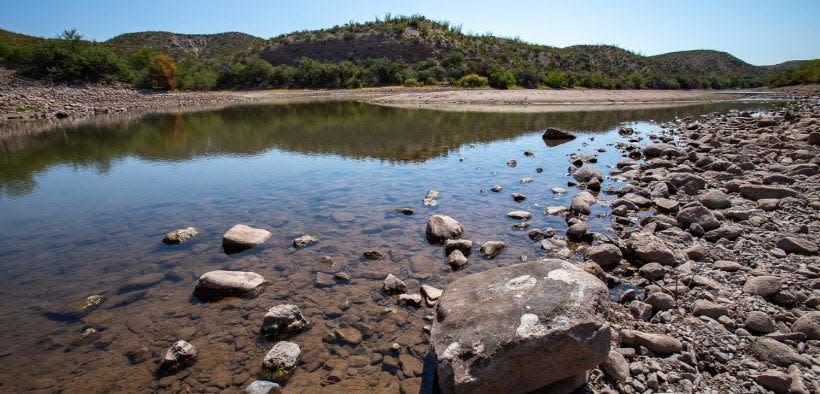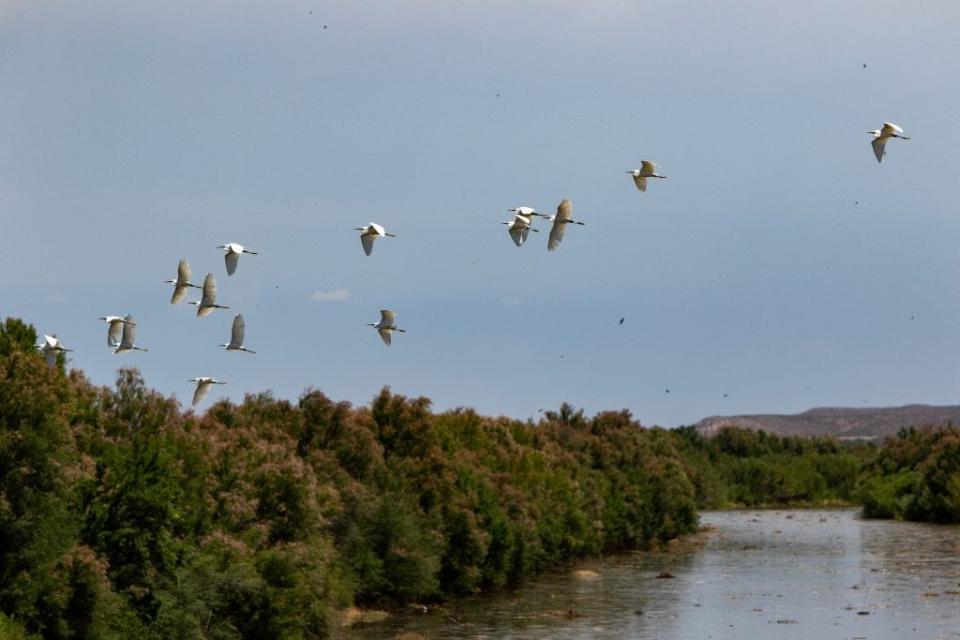Settlement talks in Supreme Court Rio Grande water case push back trial

This story was originally published by El Paso Matters.
EL PASO - Parties in the rancorous lawsuit between Texas and New Mexico over groundwater pumping on the Rio Grande are in settlement talks to possibly end the dispute.
As the fight before the U.S. Supreme Court stretches into its ninth year, ending litigation would mean a lower cost for taxpayers, who’ve already shelled out more than $30 million between the two states.
Judge Michael Melloy, who oversees the case as special master, postponed the second part of the trial in an order issued last week and gave parties until March 1 to let the court know how settlement talks are proceeding. The second part of the trial was initially slated to begin March 13.
If a settlement agreement isn’t reached, Melloy will schedule an in-person trial in Cedar Rapids, Iowa for late summer into the fall, the order stated.
Jerri Mares, New Mexico attorney general’s office spokesperson, said in a statement the office wants to “ensure New Mexico farmers and small businesses get a fair water deal.”
The Texas attorney general’s office did not respond to a request for comment.

The case — officially called No. 141 Original Texas v. New Mexico and Colorado — is the latest lawsuit over water between Texas and New Mexico.
In a 2011 federal lawsuit, New Mexico alleged the federal government shorted the state its share of Rio Grande water, and gave too much to Texas.
In response, Texas filed a lawsuit against New Mexico in the U.S. Supreme Court in 2014, alleging New Mexico takes more than its fair share of the water through diversion and groundwater pumping. Texas said New Mexico violated the Rio Grande Compact, an 82-year-old agreement that spells out how Colorado, New Mexico and Texas can split the water in the river.
The court allowed the U.S. Department of Justice to intervene in the case on Texas’ behalf. (Colorado is also named in the lawsuit, but is not presenting a case, as the issues are between New Mexico and Texas.)
After years of rulings determining the scope of the case and the parties, the virtual portion of the two-part trial started in October. It included testimony from federal and state agencies, farmers, irrigation managers, and El Paso and Las Cruces city officials. That phase of the trial ended in November.
The pending second portion, if it goes forward, is to include in-person technical testimony on various models from hydrologists and other scientists.
Danielle Prokop is a climate change and environment reporter with El Paso Matters. She can be reached at dprokop@elpasomatters.org.
Others are reading:
Snow showers expected in southern New Mexico as winter storm system brings freezing temperatures
Las Cruces schools go remote Thursday due to expected icy roads
Here's where you can pick up free COVID-19 test kits around Doña Ana County
How NMSU puts nursing career dreams within reach for more people
This article originally appeared on Las Cruces Sun-News: Settlement talks push back Supreme Court Rio Grande water case trial

